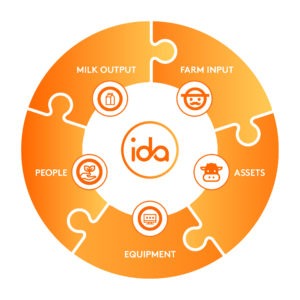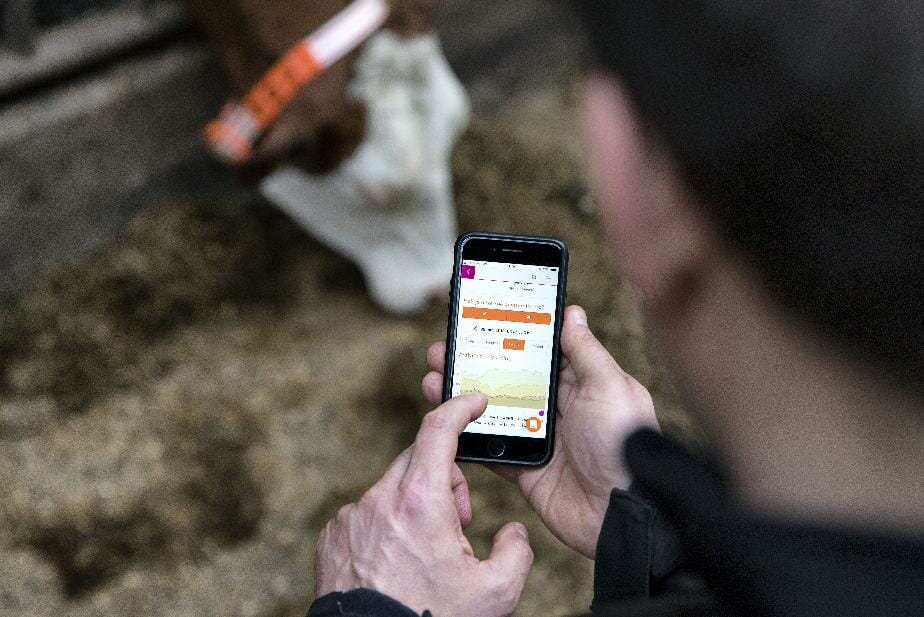Editor’s Note: Michael Dean is founding partner at AgFunder, which invested in Connecterra in 2018.
Consumers and retailers are putting increasing demands on the world’s 117 million dairy farmers to not just provide more supply but to do it with improved environmental credentials, better traceability, lower use of antibiotics and medicine, and more humane treatment of animals.
This is happening against a backdrop of persistent thin margins and rising costs — over $400 billion annually is spent on feed, around $100bn in pharmaceuticals and $20 billion in genomic industries for livestock farming overall. To stay in business, farmers must increase the efficiency of their operations. And despite the growth of dairy alternatives globally, real dairy is still in high demand and provides 14% of the world’s protein.
The good news is that it’s possible to produce lots more dairy from the same number of cows; the global average amount of milk produced per cow is just 6 liters compared to the potential to reach 30 liters a day.
On the environmental side, dairy enterprises like Danone, Arla and Land o’Lakes are also taking note. Recently they have launched initiatives to support farmers transitioning to sustainable and regenerative agriculture. But since the dairy industry has always been fragmented and disconnected, technology will be essential to make this shift at scale.
Breeding, improved health, optimised feeding strategies, and more efficient farm management can all help increase efficiency and that transition. A range of different startups have cropped up to try and provide new and improved feed products, breeding technologies, digital tools, antibiotic alternatives and vaccine improvements.
Connecterra, a startup out of The Netherlands that we’re invested in, is using sensors, data and machine learning to improve core aspects of farm operations to become more efficient, more productive and more sustainable. And it’s developing at a great pace.
From ‘fitbit for cows’ to predictive intelligence
Connecterra launched its intelligent dairy farm assistant, Ida in 2017. Ida is based on a rugged sensor that’s fitted to cows on a collar and an app for farmers. It was dubbed by the media, (rather simplistically) as the ‘fitbit for cows’ but even then, it was already quite savvy. Using data analytics and machine learning, Ida can turn animal behavior data into predictive analytics and actionable recommendations instead of just giving farmers data points. The insights were initially focused on health and fertility and core productivity drivers for farms. The main difference was that farmers’ would provide feedback to Ida, which then learnt from them and adapted its behavior for the specific farm, farm goals, herd type and environment.
Ida developed quickly and is now monitoring tens of thousands of animals in 14 countries, providing more and more data to inform Ida’s analytics. Features were added to provide accurate calving timing, a ranking of animals based on their individual efficiency, and to track changes in their environment such as bedding or feed. The ability of Ida to easily integrate with other farm management software programs on the farm further drove adoption and improved the platform’s insights. The more data sources processed by the artificial intelligence behind Ida, the more accurate and specific the insights for the farmer across their entire operation became.
Evolution into a full-stack tech and AI platform
Connecterra is now a full-stack technology and artificial intelligence platform combining proprietary sensor hardware, animal data, third party enterprise data, and machine learning algorithms.
One of the key elements the company claims is its dataset. With millions of years of cow behaviour data paired up with farmer feedback, farm and enterprise data, the company is positioned well to support the industry’s goals of sustainability and efficiency.
Ida is now not only able to deliver accurate predictive insights but can manage inputs, optimize processes and even integrate machinery, such as automatic gates. Providing this “complete vision” for farmers over their entire operation has always been Connectera’s goal.

Ida is proven to improve herd productivity by up to 30% and reduce veterinary intervention (and antibiotic use). Farmers on the platform are using Ida every day for an average of six hours, which makes for an impressive 97% retention rate with many farmers signing up for full farm coverage within the first 12 months of having a partial contract.
For enterprise clients that include Danone and Bayer, Ida helps them manage their farmer relationships and helps their farmers make the transition to more sustainable practices or work towards reducing antibiotics.
By 2023, Connecterra aims to be monitoring 25 million dairy cows out of a possible 100 million managed by Connecterra’s industry partners. Agriculture is still lagging other industries digitally and most livestock farmers are not yet using technology to track and improve the health of their animals or to assist in their management and operational choices, so the potential for scale is huge.
Wait… there’s moooore?
Connecterra’s mission is to increase the productivity of clients’ farms while reducing the impact of farming on the planet. This is why the company recently joined a coalition led by Danone to promote regenerative dairy farming. Dubbed ‘Farming for Generations,’ the 3-year project brings together animal health majors – MSD Animal Health, Neogen and FutureCow; animal nutrition and health company DSM; crop nutrition leader Yara; crop science giant Corteva Agriscience; and Connecterra. Netherlands-based Wageningen University and Research, renowned for its agriculture and livestock research, will be a research and advisory partner. The coalition will start by researching the farming models of 25 pilot dairy farms in the US, EU and Russia to identify best practices, how they differ between geographies, and how technology plays a role. Then, these practices will roll-out to more farms, pooling together the complementary areas of expertise in the coalition.
A focus on regenerative agriculture means that Connecterra is looking at the whole agricultural production chain. The farmer remains the focal point and the cow is one of many data sources Ida uses. Considering that the recent annual reports of every major dairy company recognize that sustainability, welfare and technology are the future, connecting all parts of the food production chain is key.
There’s an exciting future ahead for Connecterra.





